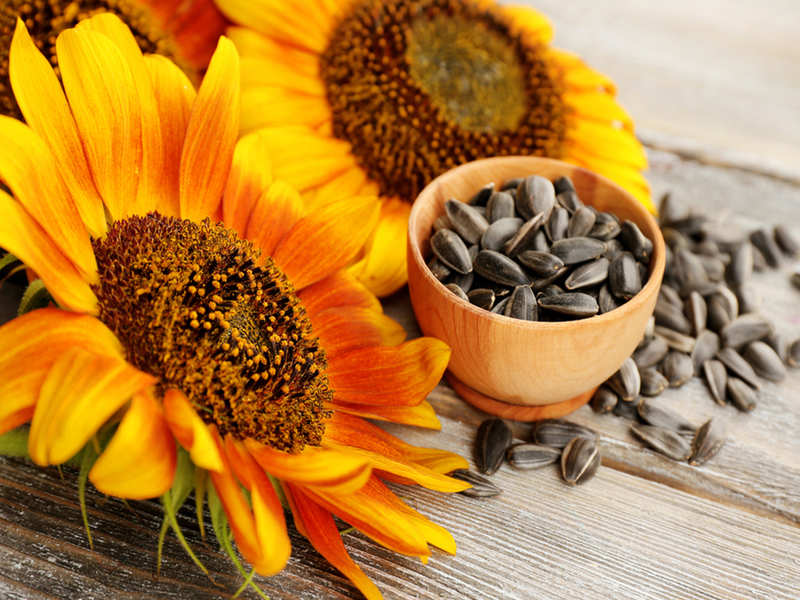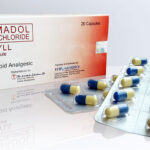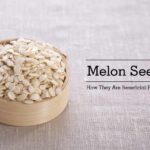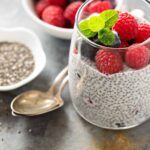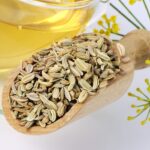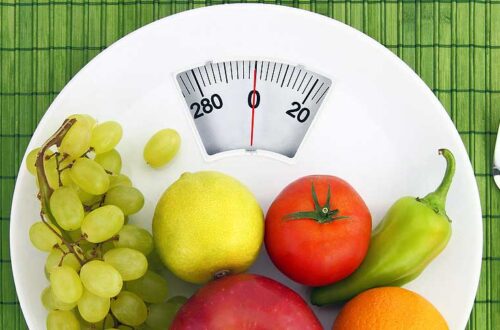Healthful Uses of Sunflower Seeds
Some amazing healthful uses of sunflower seeds include its effectiveness against cancer, diabetes, excess cholesterol and various skin related disorders. Another one among the uses of sunflower seeds is the action in combating arteriosclerosis because it is regarded as one of the foods for the arteries.
Sunflower seeds are particularly rich in vitamins B1, and E and also rich in linoleic acid which make them acquire the great healing properties in cases of excess cholesterol and arteriosclerosis.
It is worthy to note that each sunflower is made up of thousands of flowers that are somewhat tiny and also produce number of highly nutritious seeds.

According to ‘encyclopedia of foods and their healing powers’, it is said that native people of Mexico especially those in the primitive regions ate toasted sunflower seeds for many years before it was discovered that sunflower seeds are endowed with dietary and therapeutic properties.
Other names:
French: Grains due tournesol
Spanish: Semilla de girasol
German: Sonnenblumenkerne
In description, the seeds from the sunflower (‘Helianthus annuus’ L.) is a typical annual plant that belongs to the botanical family Solanaceae Compositea which grows up to a height of 2 meters. It is native to the subtropical regions of the Americas of which Mexico is chief. Presently, the sunflower is now cultivated everywhere.
SEE ALSO: Benefits of Eating Apricot
Properties of Sunflower Seeds
The fat contained in sunflower seeds is up to 49.6% and this makes excellent culinary oil. 22.8% protein is found in sunflower seeds and this amount is likely the same as that of meat. The carbohydrates percentage value is 8.3%.
Sunflower Seeds are somewhat lacking in vitamins A and C, the significance of these vitamins are quite minimal. However, sunflower seeds are one of the richest sources of vitamin E. Their vitamin E content is double than almonds. Vitamin B content is somewhat high even surpassing others except those of brewer’s yeast and wheat germ.
They are highly rich in minerals such as magnesium, iron, phosphorus and calcium.
Sunflower Seeds Composition
Based on 100 grams of raw sunflower seeds
Carbohydrates = 8.26 g
Energy = 570 kcal = 2, 386 kj
Protein = 22.8 g
Fiber = 10.5 g
Vitamin A = 5.00 µg RE
Vitamin B1 = 2.29 mg
Vitamin B2 = 0.250 mg
Niacin = 10.3 mg NE
Vitamin B6 = 0.770 mg
Vitamin C = 1.40 mg
Vitamin E = 50.3 mg α-TE
Folate = 227 µg
Vitamin B12 = ___
Calcium = 116 mg
Phosphorus = 705 mg
Magnesium = 354 mg
Potassium = 689 mg
Iron = 6.77 mg
Zinc = 5.06 mg
Saturated fat = 5.20 g
Total Fat = 49.6 g
Sodium = 3.00 mg
Cholesterol = ___
This is based on % daily value made available by 100 grams of sunflower seeds.
By nature, sunflower seeds are one of the most nutritionally concentrated foods, in particular fats, vitamins B1 and E, and minerals. With this, uses of sunflower seeds are quite advantageous. Coupled with all these nutritional richness, when properly chewed they get digested easily.
Sunflower Seeds percentage composition
Fiber = 10.5%
Carbohydrates = 8.26%
Fat = 49.6%
Minerals = 3.53%
Protein = 22.8%
Water = 5.36%

Again, when it comes to oil-bearing nuts, sunflower seeds are the ones with the lowest levels of saturated fatty acids and this is one of the reasons why uses of sunflower seeds are beneficial because they are used in reducing cholesterol. Sunflower seeds are also rich in lecithin, a kind of fat that promotes the lowering of blood cholesterol.
Percentage distribution of fatty acids
Saturated = 5.20 g
Monounsaturated = 9.46 g
Polyunsaturated = 32.7 g
Indications
Daily consumption of sunflower seeds is particularly indicated in the following conditions.
- Excess cholesterol
- Arteriosclerosis and Coronary Heart Disease
- Diabetes
- Skin disorders
- Nutritional Needs
- Cancer
- Nervous disorders
Excess Cholesterol
Consuming sunflower seeds in order to substitute other calorie-rich or fatty foods helps in reducing cholesterol levels. Among the uses of sunflower seeds is also the use of its oil to achieve the above mentioned effect.
Arteriosclerosis and Coronary Heart Disease
One of the primary causes of heart attack, poor circulation and stroke is the narrowing and hardening of the arteries which is as result of cholesterol deposits especially on wall of the arteries.

The essential fatty acids found in sunflower seeds such as linoleic acid halts the progress of arteriosclerosis by diminishing the cholesterol level in the blood.
We can therefore state that one of the uses of sunflower seeds is to combat arteriosclerosis.
Again, they help promote Porstaglandin E1 production in the body which seems important for benefiting us in dilating the blood vessels and also reducing the risk of blood clots.
Vitamin E plays a major role in one of the uses of sunflower seeds since it is in abundance.
It is an active antioxidant that stops arterial deterioration. It helps to reduce platelet stickiness which in turn prevents heart attacks and blood clots.
YOU MAY LIKE: Foods to Prevent Osteoporosis
Diabetes
For diabetics, uses of sunflower seeds are recommended as they constitute nutritious food which needs to be added to their diet. Studies find that those with low intake of vitamin E are at risk of contracting diabetes than individuals with abundant amount of vitamin E. Therefore, the high level of vitamin E in sunflower seeds helps prevent diabetes and also impede its progress.
Skin disorders
It is noteworthy that vitamin E and linoleic acid improve skin elasticity thereby protecting the cells of the skin from ageing effects. This shows an awesome antioxidant action.
Therefore, consuming sunflower seeds is highly recommended for those with eczema, dry skin, and generally dermatitis. They also improve and strengthen the hair and nails. Personally, I learned that one of the uses of sunflower seeds is because of its actions in reducing the number of grey hairs.
Increased Nutritional Needs
Since Sunflower seeds are high in calorie content as well as essential nutrients, they are good for breastfeeding mothers and pregnant women. They are also recommended for those suffering from anemia, undernourished, and those recovering from debilitating diseases.
Sunflower seeds are also appropriate for athletes and those who require supply of nutrition in great supply.
READ ALSO: Borage Medicinal Uses
Experimental and epidemiological studies show that vitamin E exerts an anti-carcinogenic action and also provides a probable cure in some cases.
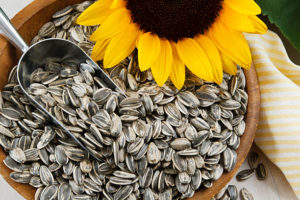
Due to sunflower seeds richness in vitamin E and coupled with its nutritional power with regards to fats of tremendous organic value and proteins, they make an ideal food for individuals at high risk of various forms of cancer.
Nervous disorders
Sunflower Seeds are highly rich in vitamin B1 and their phosphorus content, lecithin and also linoleic acid make them an excellent food that will benefit various aspects of the nervous system, in particular the brain.
It is recommended for those suffering from depression, stress, insomnia or nervousness. According to greatist.com, it is said that sunflower seeds are high in antioxidants which protect the body cells.
Preparation and Use of Sunflower Seeds
- After being spread on a flat surface and dried which may take place within a few days, sunflower seeds may be eaten raw.
- Toasted: They seem quite flavorful and should not be toasted for a long period of time to avoid them losing their nutritional values.
- After getting them shelled, the seeds are ground to a paste and this makes it an ideal food for children, old folks and people with deteriorating teeth.
Caution!
Sunflower seeds should not be consumed as addition to other regular diet. Instead, they should be eaten as a substitute for other foods so as to avoid excess calorie intake which may aggravate arteriosclerosis.
Sunflower seeds should not be salted since excess sodium triggers contraction of the arteries and also arterial wall deterioration.
Foods to help with Constipation

A graduate of Computer Science and Information Management Technology. Diploma – Caregiving, Certificates – Dementia and Diabetes Awareness and Management. A researcher, blogger, songwriter, singer and acoustic guitarist. Born in an environment where natural talents such as healing are imparted at our natural birth. This natural talents of healing is the result of our genetic inheritance and the training from family environment.

